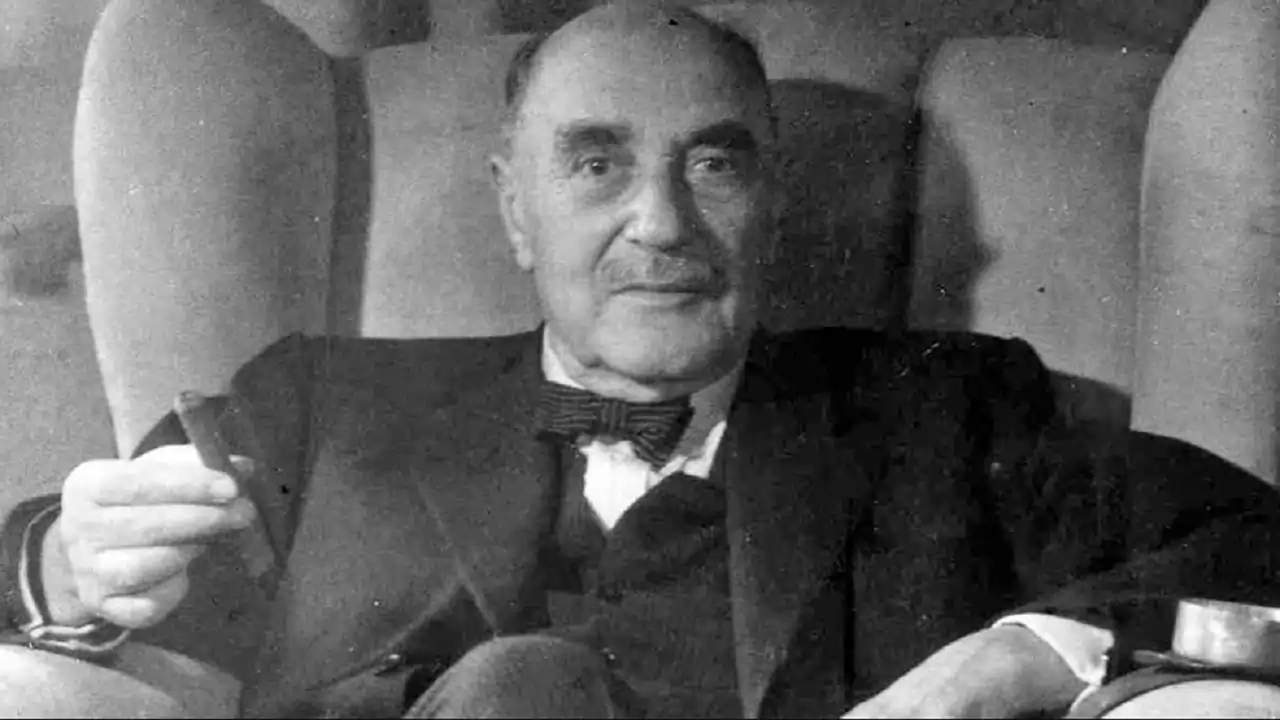The tycoon who saved thousands of Jews from the Holocaust but is remembered as a “super villain”.
Businessman Mauricio Hochschild is known as one of the controversial “tin barons”, but also as the “Bolivian Schindler”. Contradictions of a key man in the history of Bolivia who preferred “to be known as a great businessman and not as a person who saved lives”.
The more human side of Mauricio Hochschild, one of the “tin barons” whom Bolivian historiography portrays mostly as a “super villain”, was captured in the book Escape to the Andes, in which two Bolivian journalists tell how the tycoon saved thousands of Jews from dying in the Holocaust.
Between 2015 and 2016, a renewed interest in the figure of Hochschild arose in Bolivia as a result of some publications that mentioned that “he had helped save Jews and bring them to Bolivia,” Raúl Peñaranda, one of the authors of the book.
This was in addition to the opening of Bolivia’s National Mining Historical Archive, which contains the documents that revealed this previously unknown facet of the businessman of German Jewish origin.
Robert Brockmann, the other author of Escape to the Andes, explained that in his book Two Shots at Dawn, a biography of Bolivian President German Busch published in 2017, he included two chapters on his alliance with Hochschild to save as many Jews as possible from the Third Reich.
Brockmann then accessed more information from former managers who worked with the businessman, while Peñaranda also obtained more data during a trip to Washington. This is how their interest in writing a book about Hochschild grew, something they talked about when they met at a meeting and decided to undertake the initiative together.
For Brockmann, Hochschild was “such a relevant character” for Bolivian history that it was necessary to “complete his figure”. “He is one of the three great ‘tin barons’ to whom Bolivian historiography, especially that which has come after 1952, attributes to him and the other two (Simón I. Patiño and Carlos Aramayo) all the evils of Bolivia’s backwardness and poverty as exploiters,” he said .
While the information gathered between the two “painted him in a different light, more complete. We no longer had the caricature of a perfect super villain, but of an imperfect human being, with many merits and also with many defects,” he added.
The book
In Escape to the Andes, the journalists tell how Hochschild drew up a plan to help the Jewish community and through his closeness with then President Busch, managed to convince him “to open the doors of Bolivia” to these migrants.
“We tell all that story, but also with a large context of World War II, the Holocaust, the concentration camps, the Bolivian political situation at that time and what were the forces that were in conflict at that time,” explained Peñaranda.
Brockmann recalled that Hochschild first tried to “open the doors of the great Western democracies, the United States, England and France,” through “very intense lobbying at the highest levels.”
“When all this fails, he says (that) there is nothing left but to take them to Bolivia”, a “poor country, in political crisis” and that was coming out of the Chaco war that confronted it with Paraguay (1932-1935), he said.
Busch accepted to receive refugees, but not only Jews, but anyone who had the “will to work”, and as soon as he signed the authorization decree, “there were already three ships on their way”, he added.
It is estimated that thanks to Hochschild, some 20,000 Jews were saved, 12,000 who arrived before the Holocaust and 8,000 who arrived after the war.
“Bolivian Schindler
Moritz Hochshild was born in 1881 in Biblis, in the state of Hessen, into a “prominent”, “respected” Jewish family with a mining vocation. He worked in Spain and Australia before moving to Chile, where he was registered as Mauritius in his local documents, and in the early 1920s, he moved to Bolivia, where he forged his mining empire, the text recalls.
In 1933, he lost his German nationality due to Nazi dispositions, so he became a naturalized Argentinean citizen in order to continue traveling with a passport that would eventually save him from ending up in a concentration camp or a dungeon during his passage through Germany on business.
Having risked his life and resources to help the Jewish community earned him the nickname “Bolivia’s Schindler”, in reference to the German Oskar Schindler, who saved 1,200 Jews from the Holocaust by employing them in his factories. According to Peñaranda, this facet of Hochschild was little known because the magnate “did not want to tell it, his intention was to be known as a great businessman and not as a person who saved lives”.
“And then the gigantic effort made by the Bolivian State of the national revolution after 1952 to create this myth of the villains without nuances,” Brockmann complemented. In the end, Bolivia “acted well” in receiving the migrants unconditionally, which made it one of the main recipients of refugees in the continent by the end of the 1930s.

